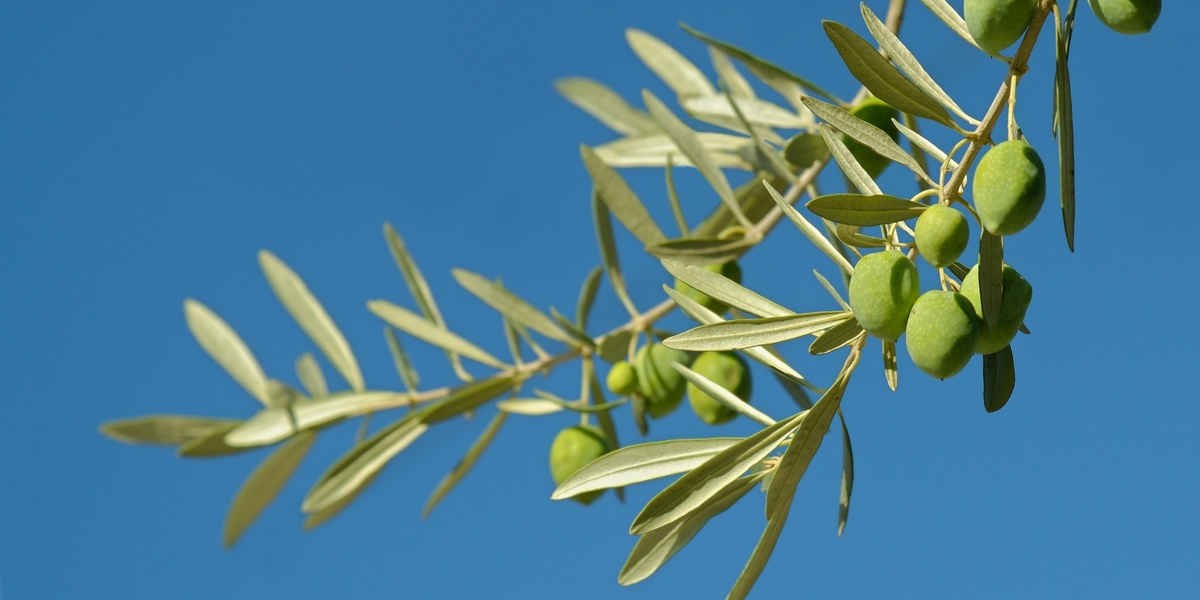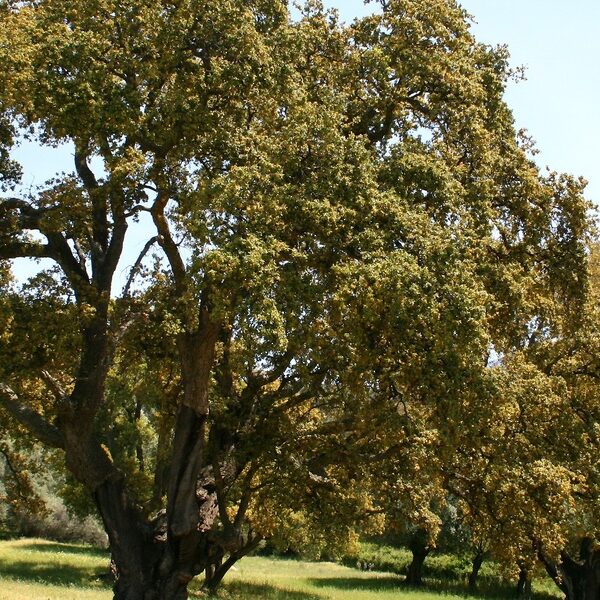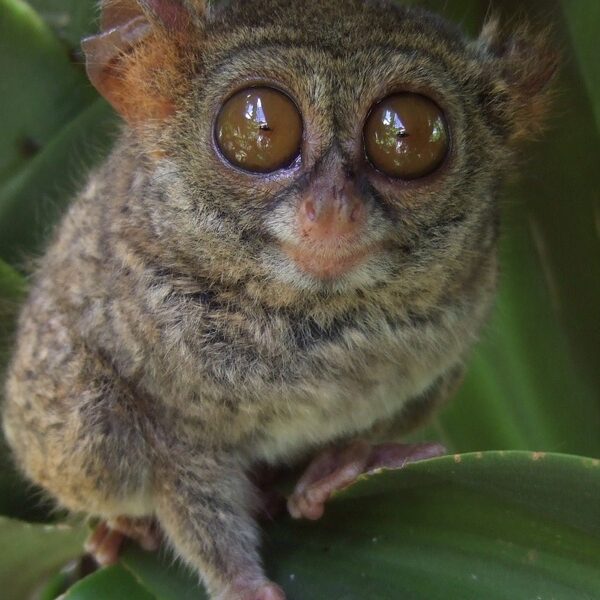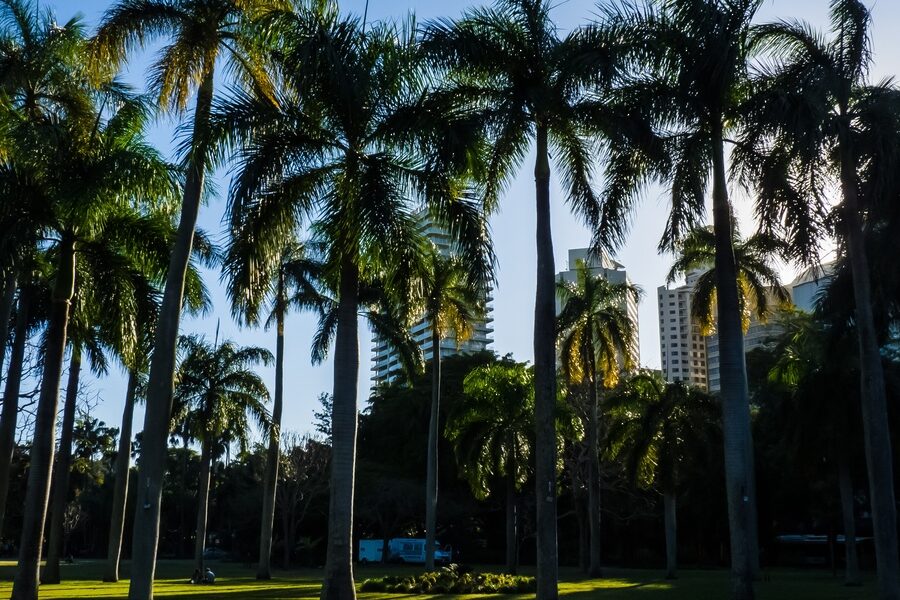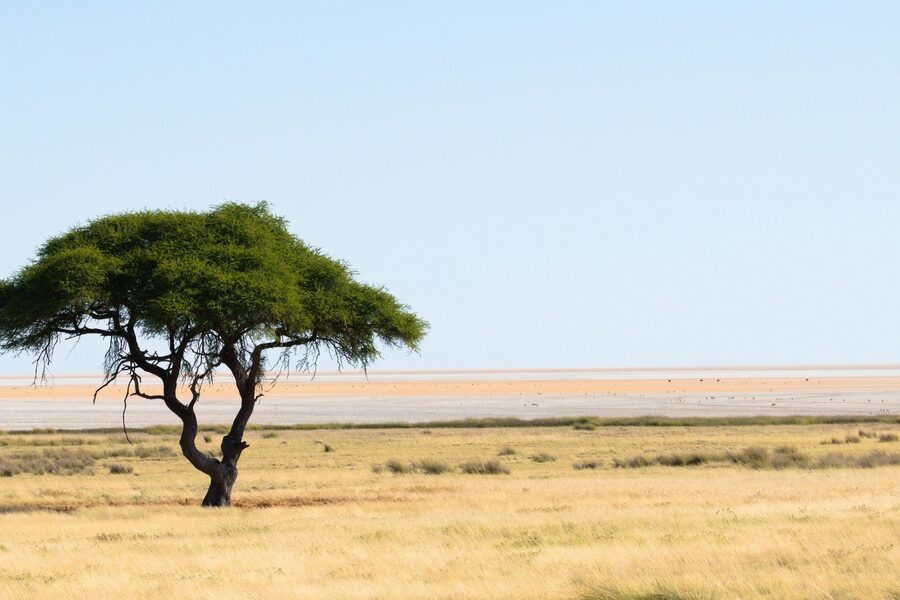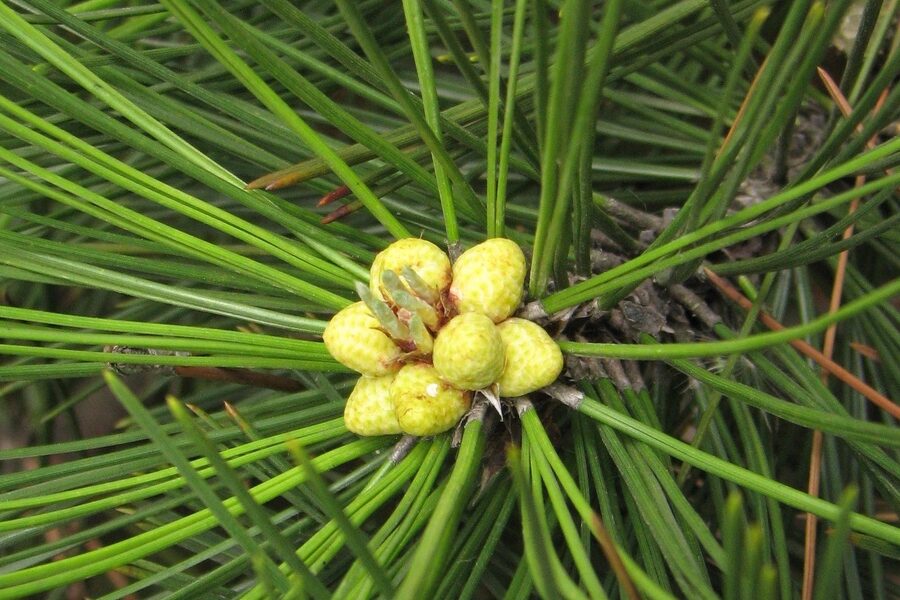Israel’s landscapes — from coastal dunes and central plains to the Negev desert and Galilean hills — create a compact but rich mosaic of plant life. Whether you’re a visitor, gardener or student, knowing which species grow where makes exploring the country’s natural world more rewarding.
There are 99 Plants of Israel, ranging from Aleppo Pine to Yellow Restharrow. For each entry you’ll find below Scientific name,Height (cm),Habitat / distribution (Israel), so you can compare identification details, typical size and where each species occurs; you’ll find below.
How can I use this list to identify plants in the field?
Use the scientific name and typical height to narrow options, then check the habitat/distribution note to match the local environment (coastal, woodland, desert). Carry a simple key or take photos of leaves, flowers and growth habit to compare with the entries below.
Are the listed species all native to Israel?
The list includes native, endemic and commonly naturalized species; habitat notes indicate whether a plant is widespread, region-specific or introduced, helping you understand which are original to local ecosystems and which spread later.
Plants of Israel
| Common name | Scientific name | Height (cm) | Habitat / distribution (Israel) |
|---|---|---|---|
| Persian Cyclamen | Cyclamen persicum | 20 | Shady rocks and woodlands, Mediterranean regions. Native. |
| Crown Anemone | Anemone coronaria | 30 | Fields and open woodlands nationwide. Native. |
| Christ’s Thorn Jujube | Paliurus spina-christi | 300 | Mediterranean scrubland, Galilee, Golan. Native. |
| Olive | Olea europaea | 800 | Groves and wild in Mediterranean hills. Native. |
| Date Palm | Phoenix dactylifera | 2,000 | Deserts, oases, Jordan Valley, Arava. Native. |
| Gilboa Iris | Iris haynei | 50 | Endemic to Mt. Gilboa’s rocky slopes. Endemic. |
| Sun’s Eye Tulip | Tulipa agenensis | 35 | Fields and mountains in northern and central Israel. Native. |
| Long-headed Poppy | Papaver umbonatum | 60 | Common in fields and disturbed soils nationwide. Native. |
| Hairy Lupin | Lupinus pilosus | 80 | Coastal plain, hills, and northern Israel. Native. |
| Mandrake | Mandragora autumnalis | 15 | Fields and heavy soils in Mediterranean regions. Native. |
| Common Fig | Ficus carica | 900 | Widespread in Mediterranean woodlands and rocky slopes. Native. |
| Carob | Ceratonia siliqua | 1,000 | Mediterranean forests and scrubland. Native. |
| Palestine Oak | Quercus calliprinos | 1,000 | The dominant tree of Mediterranean scrubland and forests. Native. |
| Palestine Terebinth | Pistacia palaestina | 500 | Mediterranean woodlands and scrubland. Native. |
| Sodom’s Apple | Calotropis procera | 400 | Deserts, oases, Dead Sea area. Native. |
| White Broom | Retama raetam | 250 | Coastal sands, Negev, and Arava deserts. Native. |
| Cretan Rockrose | Cistus creticus | 100 | Mediterranean scrubland and open forests. Native. |
| Judean Sage | Salvia judaica | 60 | Endemic to hills of Judea and Samaria. Endemic. |
| Prickly Pear | Opuntia ficus-indica | 300 | Widespread in hedges and wild areas. Naturalized. |
| Tree Tobacco | Nicotiana glauca | 600 | Disturbed areas, roadsides, and riverbeds. Naturalized. |
| Oleander | Nerium oleander | 400 | Riverbeds and wadis throughout the country. Native. |
| Athel Tamarisk | Tamarix aphylla | 1,500 | Deserts and arid regions, especially the Arava. Native. |
| Twisted Acacia | Acacia raddiana | 800 | Negev and Arava deserts. Native. |
| Christ’s Thorn | Ziziphus spina-christi | 1,000 | Jordan Valley, coastal plain, deserts. Native. |
| Golden Henbane | Hyoscyamus aureus | 50 | Grows on old walls, cliffs, and rocky places. Native. |
| Sea Daffodil | Pancratium maritimum | 40 | Coastal sand dunes. Native. |
| Common Asphodel | Asphodelus microcarpus | 90 | Batha and degraded woodlands. Native. |
| Sea Squill | Drimia maritima | 150 | Mediterranean hills and coastal areas. Native. |
| Winter Crocus | Crocus hyemalis | 10 | Rocky ground in Mediterranean hills. Native. |
| Clusius’s Sternbergia | Sternbergia clusiana | 15 | Rocky slopes in Mediterranean and semi-arid zones. Native. |
| Syrian Oregano | Origanum syriacum | 70 | Rocky hills in Mediterranean regions. Native. |
| Butcher’s Broom | Ruscus aculeatus | 75 | Shady Mediterranean woodlands and forests. Native. |
| Eastern Strawberry Tree | Arbutus andrachne | 700 | Mediterranean woodlands, especially on rocky slopes. Native. |
| Storax Tree | Styrax officinalis | 500 | Mediterranean woodlands and scrub. Native. |
| Bay Laurel | Laurus nobilis | 1,000 | Moist Mediterranean woodlands, especially in the north. Native. |
| Common Myrtle | Myrtus communis | 300 | Mediterranean woodlands and near streams. Native. |
| Mastic Tree | Pistacia lentiscus | 400 | Coastal and lowland Mediterranean scrub. Native. |
| Italian Buckthorn | Rhamnus alaternus | 500 | Mediterranean woodlands and scrubland. Native. |
| Mediterranean Cypress | Cupressus sempervirens | 3,000 | Wild populations in Golan and Hermon foothills. Native. |
| Aleppo Pine | Pinus halepensis | 2,000 | The most common pine tree in Israel’s forests. Native. |
| Almond | Prunus dulcis | 800 | Wild in hills of northern and central Israel. Native. |
| Squirting Cucumber | Ecballium elaterium | 60 | Disturbed soils and roadsides. Native. |
| Prophet’s Gourd | Cucumis prophetarum | 20 | Deserts, especially wadis, in the south. Native. |
| Colocynth | Citrullus colocynthis | 15 | Sandy soils in coastal and desert areas. Native. |
| Ashwagandha | Withania somnifera | 100 | Light soils in coastal and lowland areas. Native. |
| Castor Bean | Ricinus communis | 300 | Disturbed areas and riverbanks. Naturalized. |
| Giant Fennel | Ferula communis | 250 | Mediterranean grasslands and scrub. Native. |
| Fennel | Foeniculum vulgare | 200 | Common in disturbed soils and roadsides. Native. |
| Milk Thistle | Silybum marianum | 150 | Roadsides and fields, widespread. Native. |
| Syrian Thistle | Cynara syriaca | 100 | Heavy soils in Mediterranean region. Native. |
| Glandular Globe Thistle | Echinops adenocaulos | 120 | Common in fields and wastelands. Native. |
| Tournefort’s Gundelia | Gundelia tournefortii | 60 | Steppes and fields in northern and central Israel. Native. |
| Yellow Restharrow | Ononis natrix | 60 | Sandy and rocky places, coastal and hills. Native. |
| Spanish Broom | Spartium junceum | 300 | Common in Mediterranean hills. Native. |
| Stinking Bean Trefoil | Anagyris foetida | 200 | Mediterranean scrubland. Native. |
| Sea Medick | Medicago marina | 20 | Coastal sand dunes. Native. |
| Carmel Daisy | Scabiosa prolifera | 50 | Coastal plain, especially on kurkar and sandy soils. Native. |
| Joppa Scabious | Cephalaria joppensis | 150 | Coastal plain, particularly sandy soils. Native. |
| Wild Carrot | Daucus carota | 100 | Fields and roadsides, widespread. Native. |
| Wavy-leaved Mullein | Verbascum sinuatum | 80 | Common in fields and disturbed areas. Native. |
| Jerusalem Sage | Phlomis viscosa | 120 | Mediterranean scrubland and open woods. Native. |
| Greek Sage | Salvia fruticosa | 100 | Common in Mediterranean scrubland. Native. |
| Headed Germander | Teucrium capitatum | 40 | Rocky ground in Mediterranean and arid regions. Native. |
| Spiked Thyme | Thymbra spicata | 50 | Mediterranean scrubland, especially in the north. Native. |
| Tangled St. John’s Wort | Hypericum triquetrifolium | 40 | Fields and disturbed habitats. Native. |
| Yellow Horned Poppy | Glaucium flavum | 70 | Coastal shores and sandy areas. Native. |
| Caper | Capparis spinosa | 100 | Grows on walls, cliffs, and rocky ground. Native. |
| Long-petaled Stock | Matthiola longipetala | 40 | Deserts and sandy areas. Native. |
| White Mustard | Sinapis alba | 80 | Common in fields and disturbed areas. Native. |
| Arugula / Rocket | Eruca sativa | 60 | Widespread in fields and waste places. Native. |
| White Wall-rocket | Diplotaxis erucoides | 50 | Common weed in fields and gardens. Native. |
| Wild Radish | Raphanus raphanistrum | 70 | Common weed of cultivation and roadsides. Native. |
| Syrian Sunrose | Helianthemum syriacum | 30 | Mediterranean scrubland (batha). Native. |
| Egyptian Seablite | Suaeda aegyptiaca | 70 | Salt marshes and desert saline soils. Native. |
| Sea Orach | Atriplex halimus | 200 | Coastal areas and saline soils in the desert. Native. |
| Common Purslane | Portulaca oleracea | 10 | Widespread weed in gardens and irrigated fields. Native. |
| Heartleaf Iceplant | Aptenia cordifolia | 15 | Coastal cliffs and gardens. Naturalized. |
| Naples Garlic | Allium neapolitanum | 50 | Fields and open woods in Mediterranean region. Native. |
| Dark Grape Hyacinth | Muscari commutatum | 20 | Rocky hillsides in Mediterranean region. Native. |
| Eig’s Bellevalia | Bellevalia eigii | 25 | Endemic to coastal sands and kurkar hills. Endemic. |
| Narbonne Star-of-Bethlehem | Ornithogalum narbonense | 70 | Common in fields and grasslands. Native. |
| Dayan’s Gagea | Gagea dayana | 15 | Desert and semi-steppe regions. Native. |
| Steven’s Meadow Saffron | Colchicum stevenii | 10 | Open, rocky ground in Mediterranean region. Native. |
| Negev Iris | Iris atrofusca | 40 | Endemic to the northern Negev desert. Endemic. |
| Lortet’s Iris | Iris lortetii | 60 | Upper Galilee and southern Lebanon. Native. |
| Paperwhite Narcissus | Narcissus tazetta | 45 | Damp meadows and near streams. Native. |
| Anatolian Orchid | Orchis anatolica | 35 | Mediterranean woodlands and scrub. Native. |
| Broad-leaved Helleborine | Epipactis helleborine | 80 | Shady forests, especially in northern Israel. Native. |
| Palestine Pistachio | Pistacia atlantica | 1,200 | Arid and semi-arid regions. Native. |
| Syrian Bear’s Breech | Acanthus syriacus | 100 | Heavy soils in Mediterranean hills. Native. |
| Syrian Cornflower-thistle | Centaurea cyanoides | 40 | Mediterranean scrubland. Native. |
| Thorny Burnet | Sarcopoterium spinosum | 40 | Dominant in degraded Mediterranean hills (batha). Native. |
| Ciliate Medick | Medicago ciliaris | 30 | Fields and disturbed habitats. Native. |
| Globe-flower | Globularia alypum | 60 | Rocky slopes in the Mediterranean region. Native. |
| Water Mint | Mentha aquatica | 90 | Marshes, stream banks, and wet places. Native. |
| Spiny Hawthorn | Crataegus aronia | 500 | Mediterranean woodlands and hills. Native. |
| Judas Tree | Cercis siliquastrum | 1,000 | Native to hills of Galilee and Carmel. Native. |
| Hairy Thorow-wax | Bupleurum nodiflorum | 25 | Fields and open, dry habitats. Native. |
| Dog-violet | Viola pentadactyla | 15 | Shady rocks and woods in the Upper Galilee. Native. |
Images and Descriptions
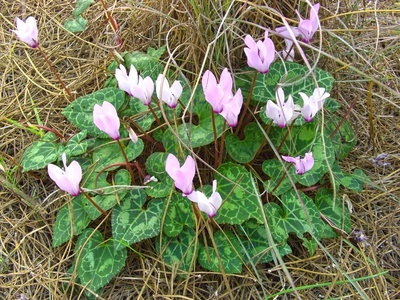
Persian Cyclamen
Israel’s national flower, featuring heart-shaped leaves and elegant, upswept pink or white petals. This beloved tuberous perennial blooms throughout the winter, often growing in rocky crevices.
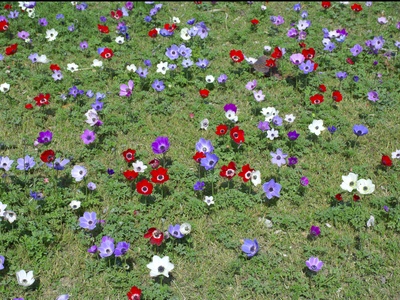
Crown Anemone
Famous for creating vast, colorful carpets of red, purple, pink, or white flowers. This protected wildflower is a quintessential sign of the Israeli spring, blooming from winter to early spring.
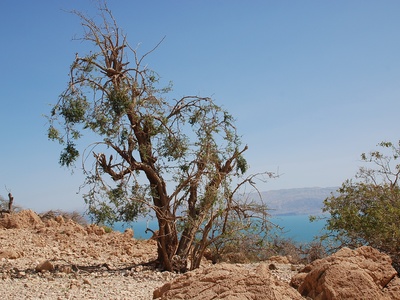
Christ’s Thorn Jujube
A dense, thorny shrub with distinctive circular, wing-like fruits that look like tiny hats. According to Christian tradition, its spiny branches were used to make the crown of thorns.
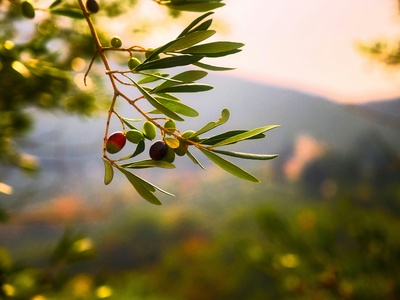
Olive
An iconic, long-lived tree with a gnarled trunk and silvery-green leaves. A symbol of peace and a cornerstone of the regional diet, ancient olive trees dot the landscape.
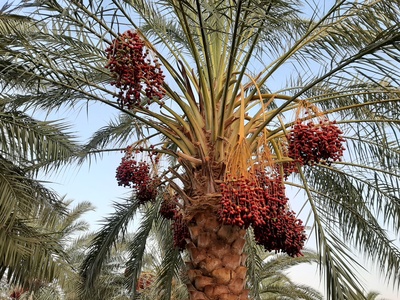
Date Palm
The quintessential tree of desert oases, characterized by its tall trunk and crown of large, feathery fronds. It has been cultivated for thousands of years for its sweet, nutritious dates.
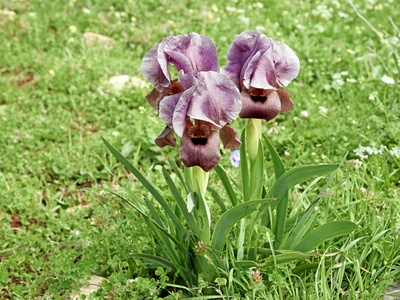
Gilboa Iris
A magnificent and rare endemic iris with large, regal flowers of deep purple to almost black. It’s a highly protected species and a symbol of Israeli nature conservation.
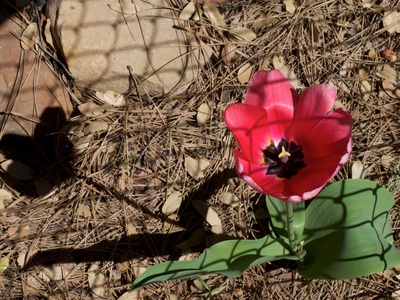
Sun’s Eye Tulip
A striking wild tulip with pointed, flame-red petals that have a black and yellow center, resembling an eye. It blooms in early spring, often in agricultural fields.
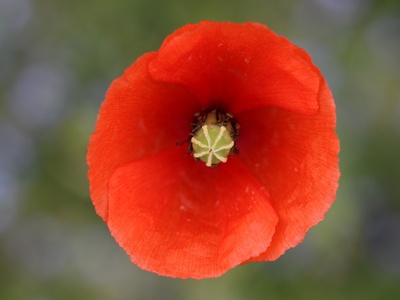
Long-headed Poppy
A vibrant red poppy that often grows alongside the Crown Anemone. It is distinguished by its elongated seed capsule and black spots at the base of its petals.
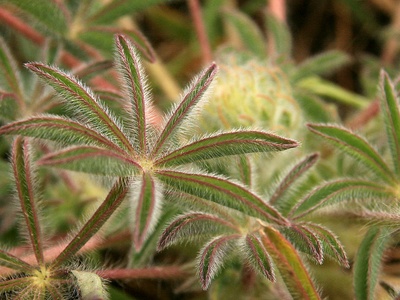
Hairy Lupin
A tall, impressive plant with palmate leaves and dense spires of beautiful deep blue to purple flowers. The hairy pods are a key identification feature of this common lupine.

Mandrake
A low-growing plant with a rosette of large, dark green leaves and bell-shaped purple flowers. Its large, forked root has been steeped in folklore and superstition for centuries.
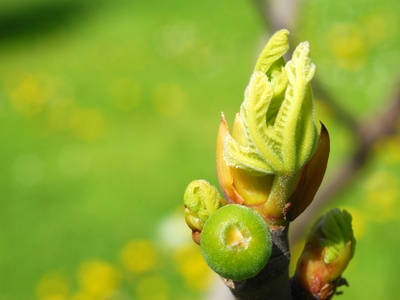
Common Fig
A deciduous tree famous for its sweet, pear-shaped fruits and large, lobed leaves. Wild figs are an important food source for wildlife and a common sight in the Israeli landscape.
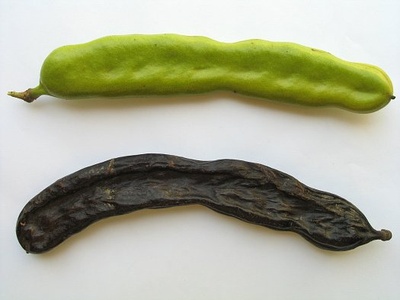
Carob
An evergreen tree with dense, glossy foliage that produces long, brown pods. The pods contain a sweet pulp often used as a chocolate substitute and have a rich history in the region.
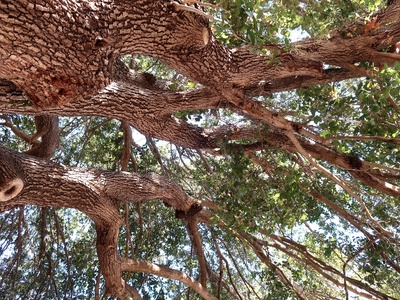
Palestine Oak
A hardy, evergreen oak with small, spiny-edged leaves. It forms dense thickets and is a cornerstone species of the local ecosystem, providing food and shelter for many animals.
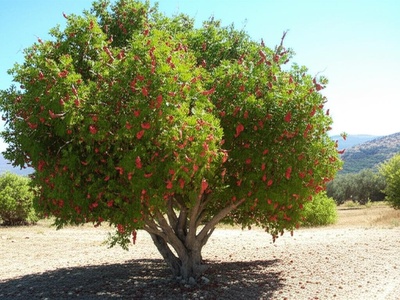
Palestine Terebinth
A deciduous shrub or small tree related to the pistachio. It is known for its bright red, horn-shaped galls caused by aphids and its leaves that turn a brilliant red in autumn.
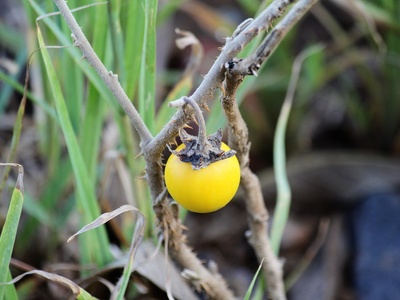
Sodom’s Apple
A desert shrub with large, gray-green leaves and waxy, crown-shaped purple and white flowers. Its large, balloon-like fruit contains silky seeds but is filled with a poisonous, milky sap.
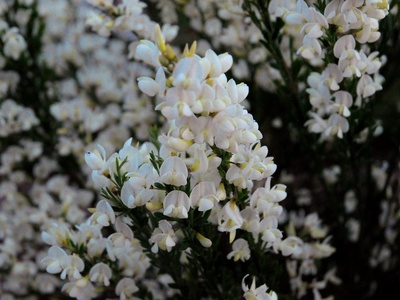
White Broom
A dominant desert shrub with long, drooping green branches and a profusion of small, fragrant white flowers. It is highly adapted to arid conditions and stabilizes sand dunes.
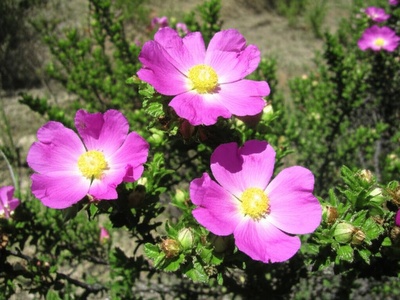
Cretan Rockrose
A shrub with sticky leaves and delicate, crumpled-looking pinkish-purple flowers. The plant secretes a fragrant resin called labdanum, which has been used in perfumes for millennia.
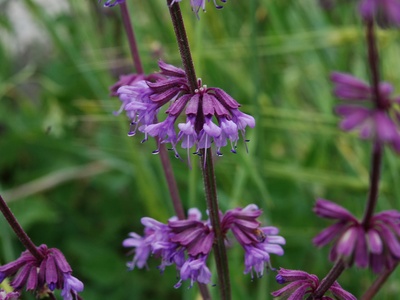
Judean Sage
A beautiful endemic sage with a rosette of wrinkled leaves and tall stalks of whorled, lilac-colored flowers. It is a protected species found in a limited range of rocky habitats.
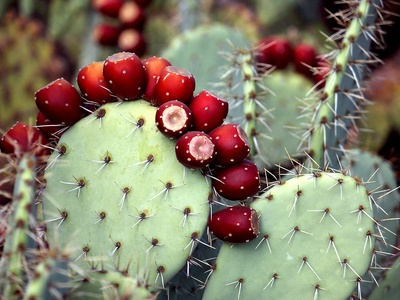
Prickly Pear
An iconic cactus with flat, fleshy pads and sharp spines, introduced from the Americas. It produces delicious reddish-orange fruits called “sabras” and is a common sight in the landscape.
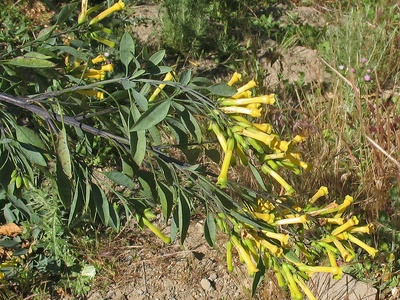
Tree Tobacco
A fast-growing, weedy shrub with large, bluish-green leaves and long, tubular yellow flowers. Originally from South America, this poisonous plant is now widespread throughout Israel.
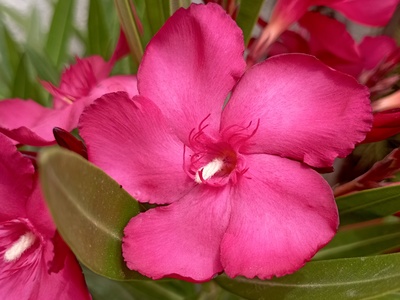
Oleander
A beautiful evergreen shrub with long, narrow leaves and showy clusters of pink or white flowers. Despite its beauty, all parts of the oleander plant are highly poisonous.
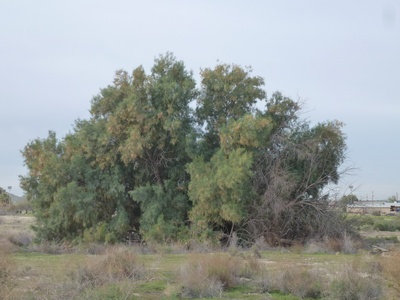
Athel Tamarisk
A resilient desert tree with fine, scale-like leaves that give it a feathery appearance. It is extremely tolerant of saline soils and drought, often planted as a windbreak.
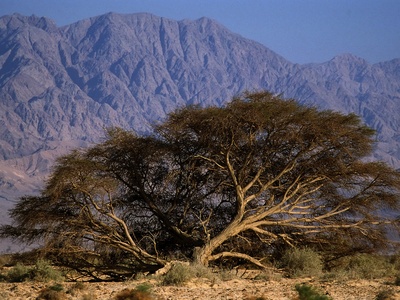
Twisted Acacia
A classic umbrella-shaped acacia tree of the desert, with thorny branches and small leaflets. It is a keystone species in its arid habitat, providing food and shade for wildlife.
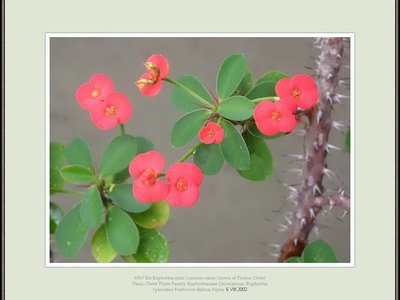
Christ’s Thorn
A thorny evergreen tree with small, shiny leaves and edible, apple-like yellow fruits. It is revered in several traditions and considered a candidate for the biblical crown of thorns.
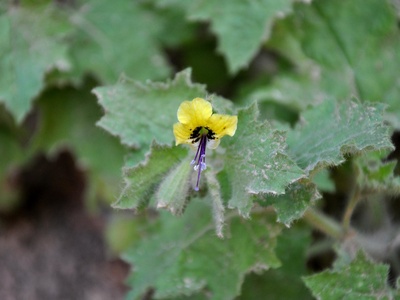
Golden Henbane
A striking plant with sticky leaves and bright yellow, funnel-shaped flowers with a dark purple center. It often grows directly out of stone walls, including Jerusalem’s Western Wall.
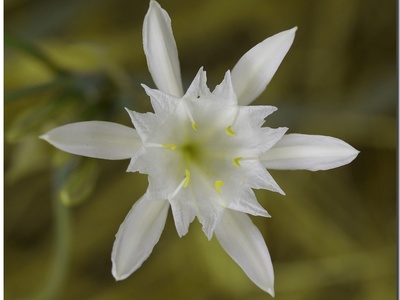
Sea Daffodil
A stunning bulbous plant that produces large, white, and highly fragrant flowers in late summer. It blooms directly from the hot sand, a beautiful and resilient coastal species.
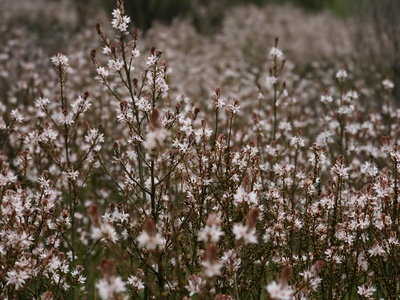
Common Asphodel
A common plant that sends up a tall, leafless stalk with numerous white, star-shaped flowers with a pinkish-brown stripe. After fires, it is often one of the first plants to regrow.
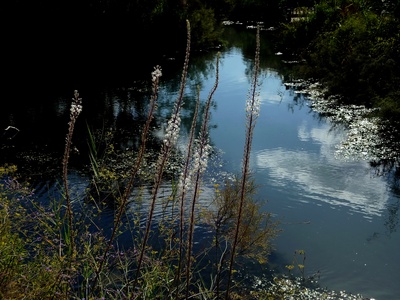
Sea Squill
A massive bulb that sends up a very tall, dramatic spike of white flowers in the late summer before its leaves appear. It is highly toxic and has historical medicinal uses.
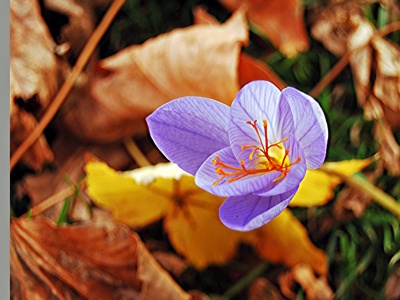
Winter Crocus
A small, delicate crocus that blooms in early winter, often one of the first flowers of the season. Its white flowers have yellow centers and purple veining on the outside.
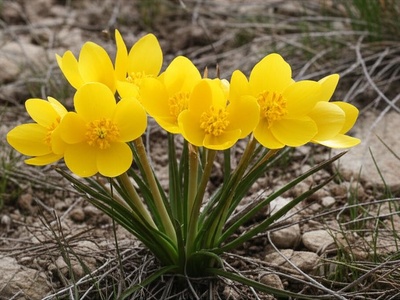
Clusius’s Sternbergia
This plant produces very large, bright yellow, goblet-shaped flowers in autumn, appearing before its leaves. It creates a stunning splash of color on dry, rocky hillsides.
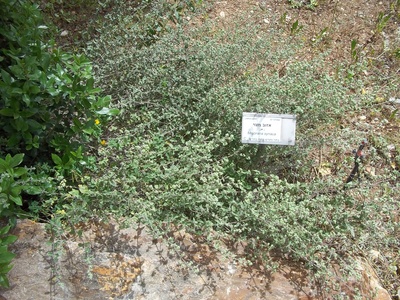
Syrian Oregano
The famous “Za’atar” plant, this aromatic herb has fuzzy, gray-green leaves and small white flowers. It is a staple of Middle Eastern cuisine and a protected wild plant.
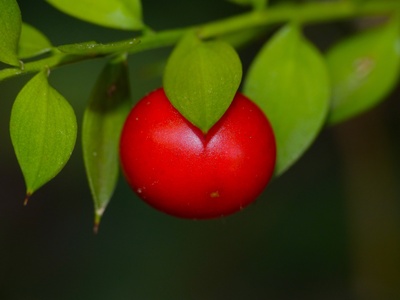
Butcher’s Broom
A peculiar evergreen shrub with flattened, leaf-like stems called cladodes that bear small flowers and bright red berries. The sharp points give the plant a prickly feel.
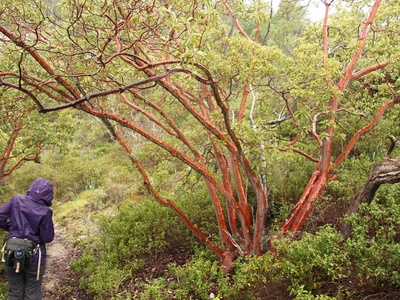
Eastern Strawberry Tree
A beautiful evergreen tree with striking, smooth, reddish-orange bark that peels away. It produces small, bell-shaped flowers and edible, though bland, strawberry-like red fruits.
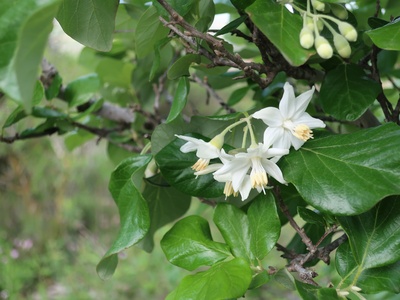
Storax Tree
A deciduous shrub or small tree that produces beautiful, fragrant, white, bell-shaped flowers in spring. Its resin, known as storax, was historically used in incense and perfume.
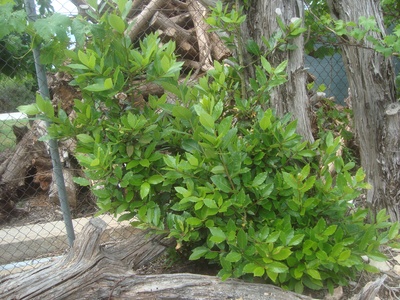
Bay Laurel
The classic laurel tree with aromatic, evergreen leaves that are used as a culinary herb (bay leaf). In antiquity, its leaves were woven into wreaths to crown victors.
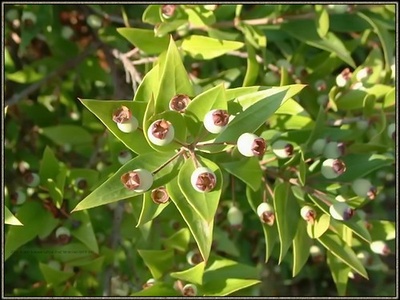
Common Myrtle
An evergreen shrub with small, fragrant, glossy leaves and delicate white flowers with a puff of stamens. Its aromatic leaves and berries have been used in rituals and cuisine.
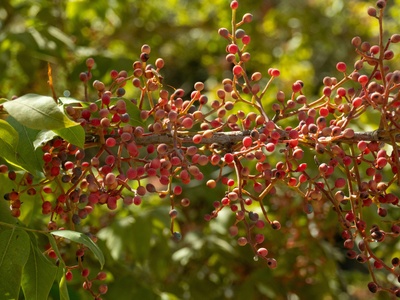
Mastic Tree
A dense, evergreen shrub that produces a fragrant resin known as mastic. It is a common component of the coastal scrubland and is known for its resilience and strong scent.
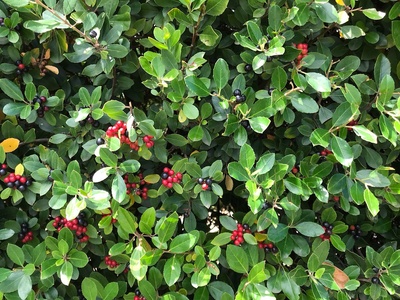
Italian Buckthorn
A tough, evergreen shrub with glossy, serrated leaves and small, inconspicuous flowers. It produces small red berries that ripen to black, providing food for birds.
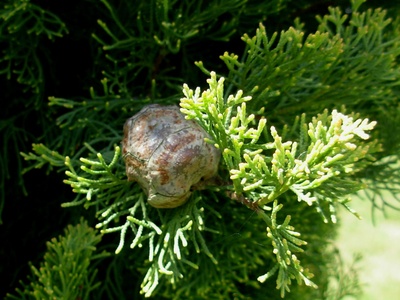
Mediterranean Cypress
The iconic tall, slender cypress tree that punctuates the Mediterranean landscape. While widely planted, truly wild populations are rare. It is a symbol of mourning and eternity.
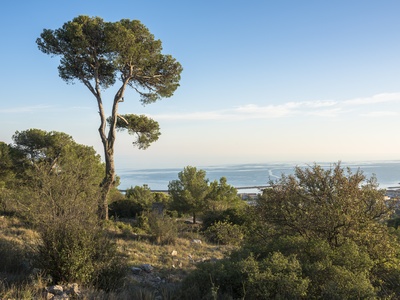
Aleppo Pine
A hardy pine adapted to the Mediterranean climate, easily recognized by its relatively short needles and conical shape. It is extensively used in Israeli forestry projects.
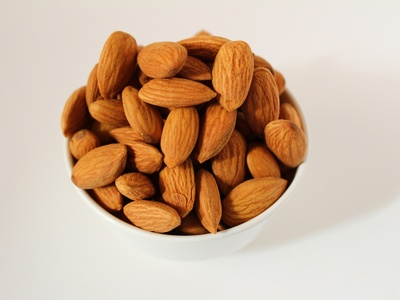
Almond
One of the first trees to bloom, often in late winter, with beautiful pale pink to white blossoms. Wild almonds are the ancestors of the cultivated varieties grown for their nuts.
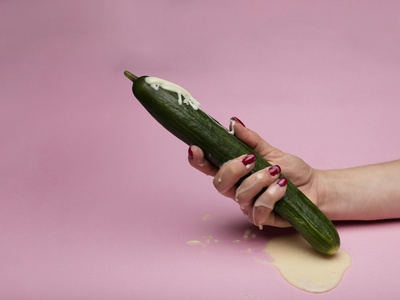
Squirting Cucumber
A sprawling, hairy perennial famous for its explosive seed dispersal. When ripe, the fruit detaches from its stalk and forcefully ejects its seeds in a stream of mucilaginous liquid.
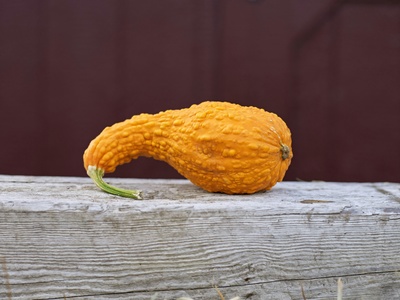
Prophet’s Gourd
A trailing desert vine with small, round, spiny fruits that turn yellow when ripe. The fruit is bitter and poisonous but is a characteristic plant of the Negev and Arava.
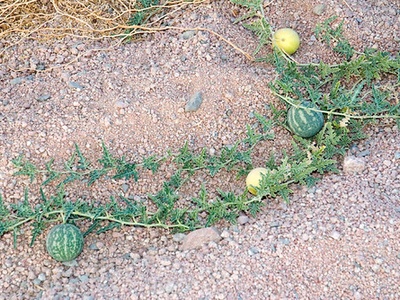
Colocynth
A desert vine with round, melon-like fruits that are notoriously bitter and toxic. Known as the “bitter apple,” it is a powerful purgative and an impressive desert survivor.

Ashwagandha
A medicinal plant with oval leaves and small, bell-shaped flowers. Its most notable feature is the bright red berry enclosed in a papery, lantern-like calyx.
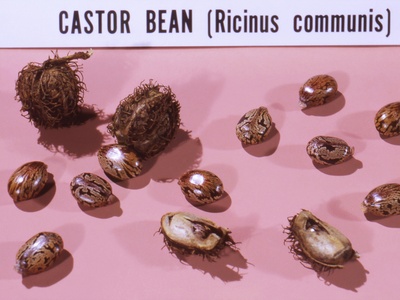
Castor Bean
A large, fast-growing plant with huge, star-shaped leaves. It produces spiky seed capsules containing highly poisonous seeds from which castor oil is extracted.
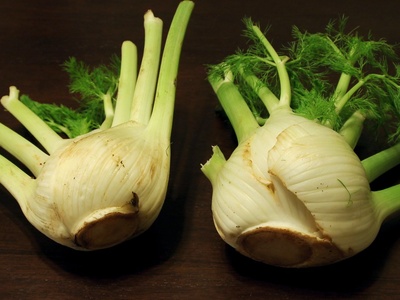
Giant Fennel
A massive herbaceous plant that sends up a thick flowering stalk with huge umbels of yellow flowers. After it dies back in summer, the dry stalks remain a feature of the landscape.

Fennel
An aromatic perennial with feathery, anise-scented leaves and umbels of yellow flowers. Both its leaves and seeds are used for culinary purposes, and it has a long history of use.
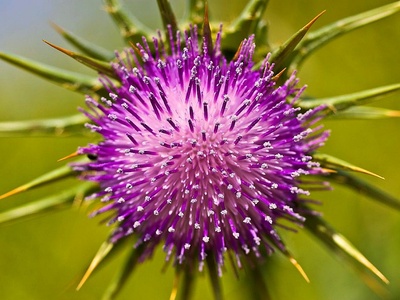
Milk Thistle
A robust thistle recognized by its large, spiny leaves with distinctive white veins, giving them a milk-splashed look. The purple flower heads are also very large and showy.
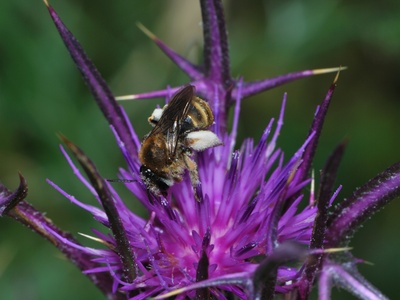
Syrian Thistle
A wild relative of the artichoke, this stout thistle has large, spiny leaves and a big, purple flower head. The flower base is edible, similar to its cultivated cousin.
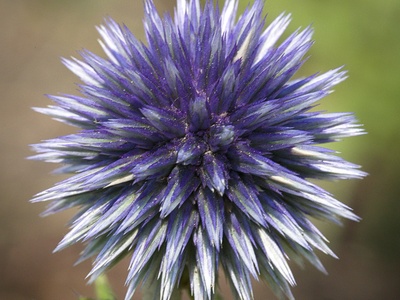
Glandular Globe Thistle
A tall, spiny plant with perfectly spherical, blue flower heads made up of many tiny individual florets. The striking globes are a common sight in the summer landscape.
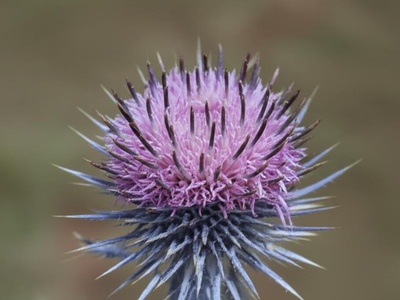
Tournefort’s Gundelia
A spiny, thistle-like plant where the entire young flowering head is harvested and eaten as a vegetable. It’s a unique plant that tumbles across the landscape when dry.
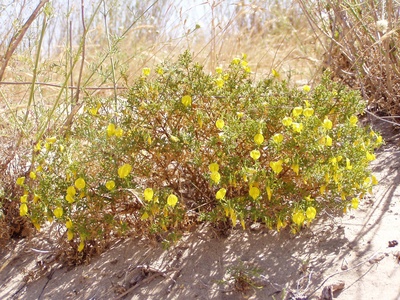
Yellow Restharrow
A somewhat sticky shrublet with trifoliate leaves and bright yellow, pea-like flowers. Its name comes from the toughness of its roots, which could stop a harrow.
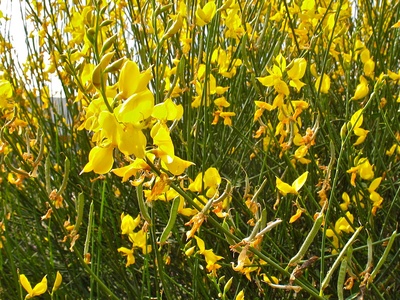
Spanish Broom
A shrub with long, green, almost leafless stems that are covered in large, fragrant, bright yellow flowers in the spring. It is a very common and conspicuous plant.
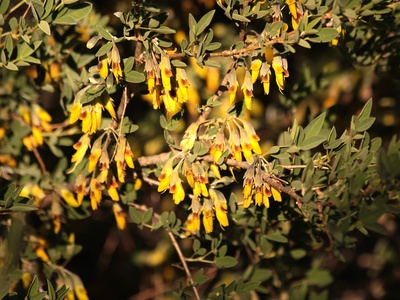
Stinking Bean Trefoil
A shrub that is one of the few plants in the region to lose its leaves in the summer to conserve water. Its yellow flowers have a somewhat unpleasant smell, hence the name.
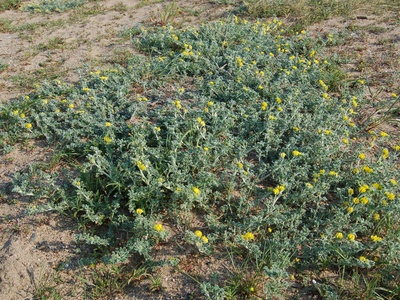
Sea Medick
A low-growing, silvery-haired perennial that helps stabilize coastal dunes. It has small clusters of yellow flowers and distinctively spiny, coiled seed pods.
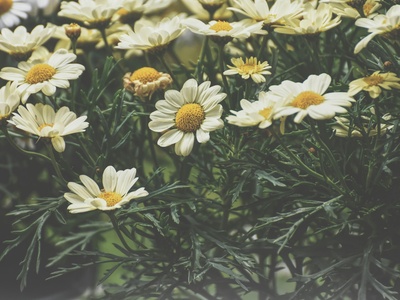
Carmel Daisy
A beautiful annual with delicate, creamy-white to pale yellow pincushion-like flowers. It is a common and beloved wildflower of the coastal region, blooming in spring.
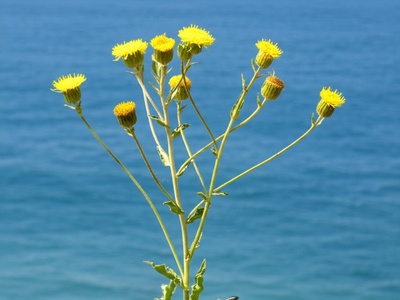
Joppa Scabious
A very tall plant with pinnately divided leaves and pale yellow flower heads on long stalks. It stands out in the coastal landscape and is named after the city of Jaffa (Joppa).
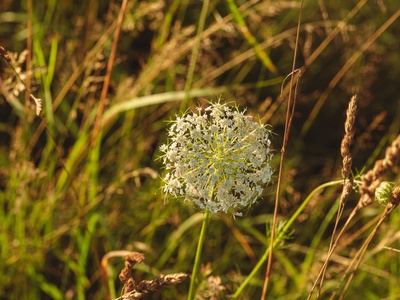
Wild Carrot
The wild ancestor of the cultivated carrot. It has feathery leaves and a flat-topped umbel of tiny white flowers, often with a single dark purple floret in the center.
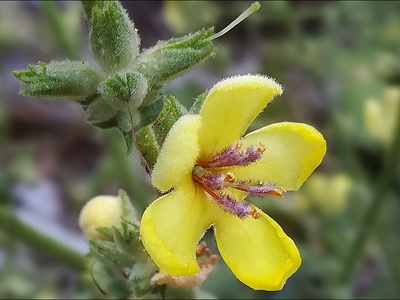
Wavy-leaved Mullein
A biennial plant that forms a large rosette of wavy, gray-green leaves in its first year. In its second year, it sends up a tall, branched spike of bright yellow flowers.
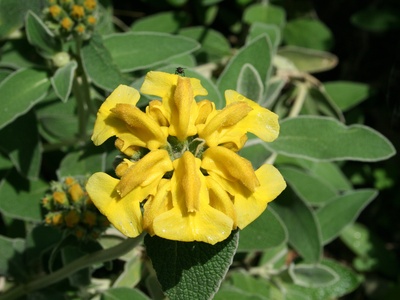
Jerusalem Sage
Despite its name, it is not a true sage. This shrub has large, arrow-shaped, fuzzy leaves and whorls of showy, bright yellow, hooded flowers arranged along the stem.
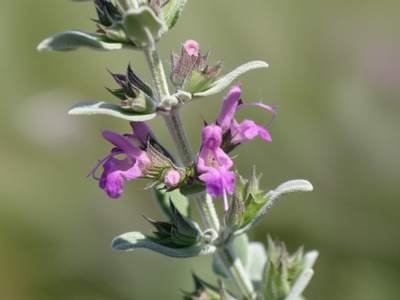
Greek Sage
A highly aromatic sage, often used for making herbal tea. It has fuzzy, grayish leaves, sometimes with small lobes at the base, and produces spikes of pinkish-lavender flowers.
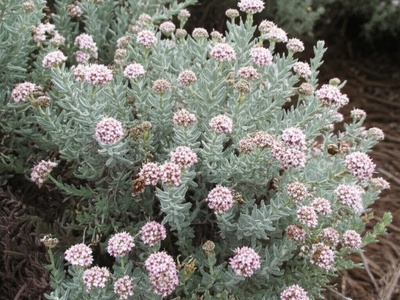
Headed Germander
A small, woody shrub with tiny, grayish leaves that are white and woolly underneath. It produces dense, round heads of small white or pale pink flowers.
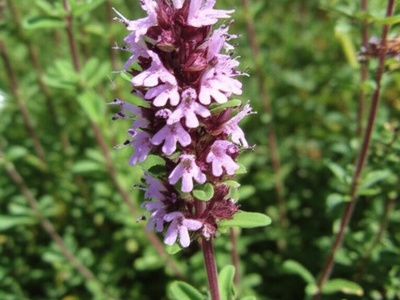
Spiked Thyme
An aromatic sub-shrub with a strong scent, similar to oregano. It has narrow leaves and dense, cylindrical spikes of small purple flowers, making it very distinctive.
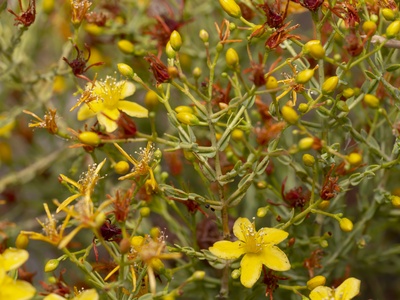
Tangled St. John’s Wort
A perennial herb with a tangled, much-branched structure. It has small leaves that appear to be perforated and produces numerous small, bright yellow flowers in the summer.
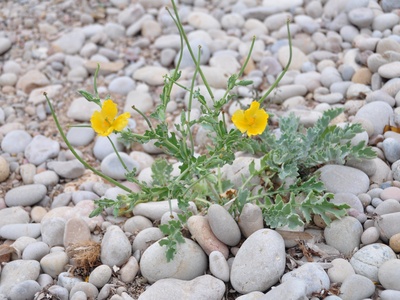
Yellow Horned Poppy
A striking coastal plant with wavy, blue-green leaves and large, bright yellow flowers. It is named for its very long, horn-shaped seed pod that can reach up to 30 cm.
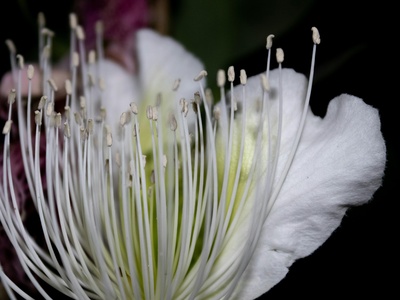
Caper
A trailing, spiny shrub with round, fleshy leaves and large, beautiful white and purple flowers. The unopened flower buds are pickled to become the capers used in cooking.
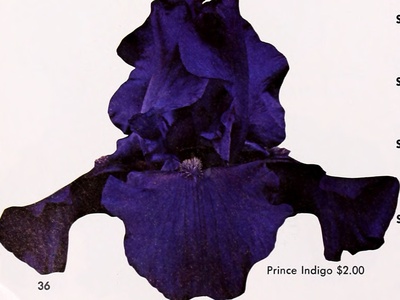
Long-petaled Stock
A desert annual known for its intensely fragrant flowers that open at night to attract moth pollinators. The flowers have long, narrow, purplish-brown petals.
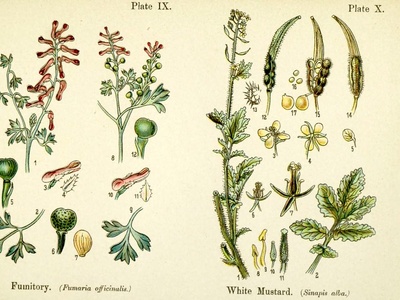
White Mustard
A fast-growing annual with bright yellow flowers. It is likely the mustard mentioned in the New Testament parable and is cultivated for its seeds to make the condiment.
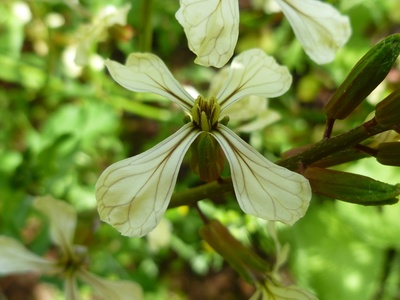
Arugula / Rocket
The same species as the popular salad green, this plant grows wild throughout Israel. It has lobed leaves and creamy white to yellowish flowers with purple veins.
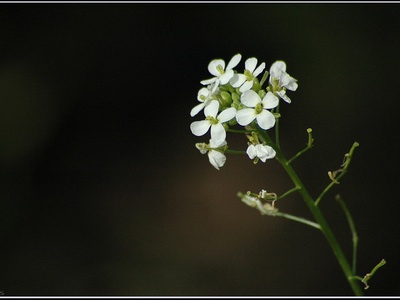
White Wall-rocket
A prolific annual weed that can quickly cover fields with its white, four-petaled flowers. Despite its name, it is not a true rocket (Eruca).
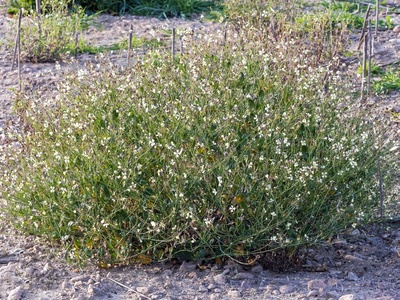
Wild Radish
A widespread annual with variable flower color, ranging from yellow to white or lilac, often with dark veins. Its seed pods are constricted between the seeds.
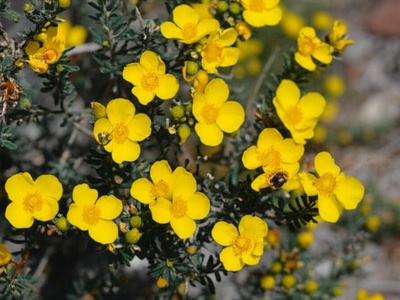
Syrian Sunrose
A small shrublet that covers itself in a profusion of small, delicate yellow flowers in the spring. Each flower lasts only a day, but new ones open each morning.

Egyptian Seablite
A succulent, salt-tolerant plant (halophyte) found in the Dead Sea area and other saline habitats. Its fleshy leaves can turn reddish as they age.
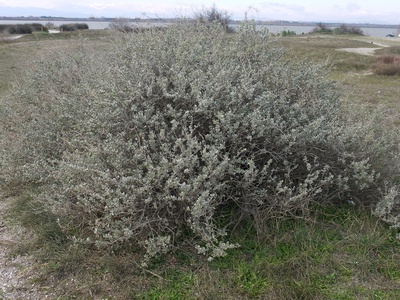
Sea Orach
A woody, sprawling shrub with silvery-gray, scaly leaves that are edible and salty. It is highly resistant to drought and salinity, making it a key plant in harsh environments.
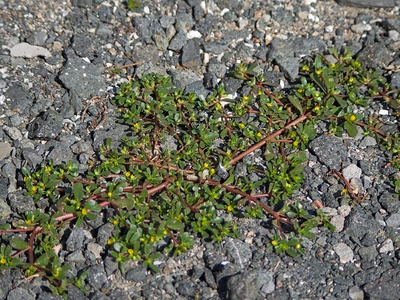
Common Purslane
A low-growing succulent annual with reddish stems, fleshy leaves, and small yellow flowers. It is edible, rich in omega-3 fatty acids, and has a slightly sour taste.
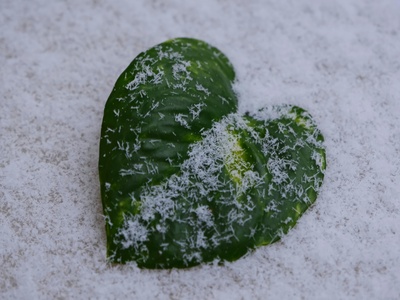
Heartleaf Iceplant
A succulent groundcover native to South Africa that has become naturalized on coastal cliffs. It has heart-shaped, bright green leaves and showy, bright pink or purple flowers.
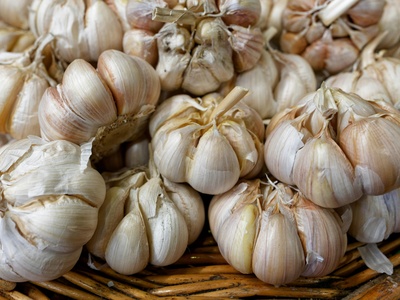
Naples Garlic
A wild onion with a beautiful, umbrella-like cluster of pure white, star-shaped flowers on a leafless stalk. It has a mild garlic scent when its leaves are crushed.
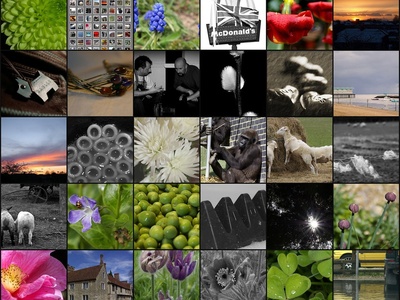
Dark Grape Hyacinth
A small bulbous plant with dense spikes of dark, blackish-purple, urn-shaped flowers that appear in winter. The flowers have a faint, sweet fragrance.
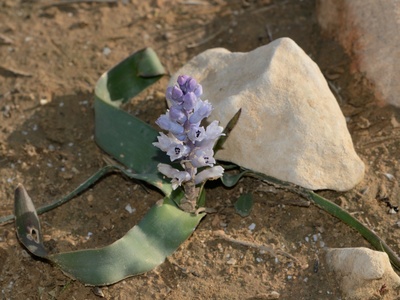
Eig’s Bellevalia
A protected, endemic geophyte with a dense spike of flowers that transition from pale blue or violet at the top to brownish-purple at the bottom. It’s a gem of the coastal plain.
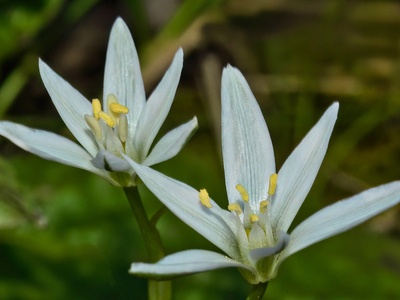
Narbonne Star-of-Bethlehem
A tall and elegant geophyte with a dense, elongated spike of many white, star-like flowers. Each petal has a faint green stripe on its underside, visible when the flower is closed.
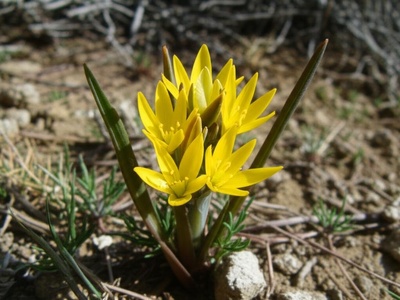
Dayan’s Gagea
A small, delicate bulbous plant that produces one to a few bright yellow, star-shaped flowers in early spring. It is a cheerful sign of life in arid landscapes.
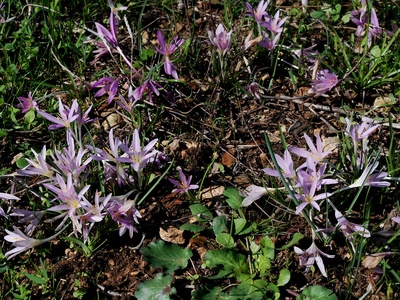
Steven’s Meadow Saffron
A small, autumn-flowering corm that produces delicate, pinkish-lilac, star-like flowers. It blooms before its leaves appear, often carpeting hillsides after the first rains.
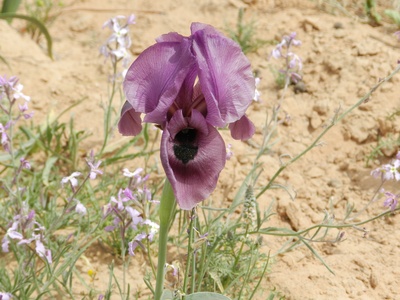
Negev Iris
A stunningly dark and dramatic iris with large, velvety flowers that are deep brownish-purple to nearly black. It is a protected species adapted to desert conditions.
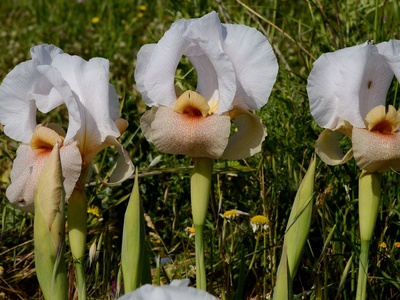
Lortet’s Iris
Considered one of Israel’s most beautiful irises, with large, delicate flowers. The standards are pale lilac, while the falls are creamy white with dense purple or pink spots.
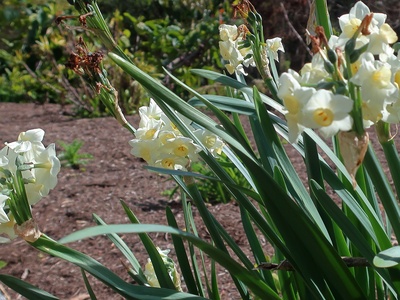
Paperwhite Narcissus
A beautiful and intensely fragrant narcissus that blooms in winter. It produces clusters of small flowers with white petals and a yellow central cup on a single stem.
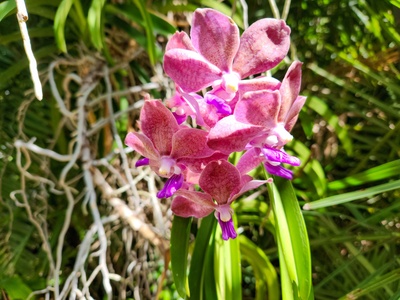
Anatolian Orchid
A common and beautiful terrestrial orchid with a spike of pink to purple flowers. The lower petal (lip) is spotted with darker purple and is divided into three lobes.
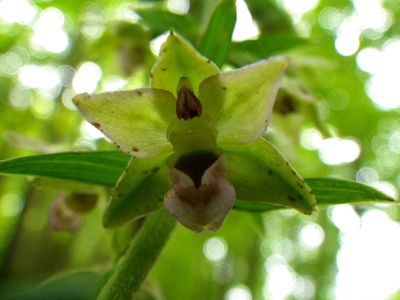
Broad-leaved Helleborine
A tall, leafy orchid that is relatively understated. It produces a spike of numerous small, greenish-purple, cup-shaped flowers that are often overlooked in the forest undergrowth.
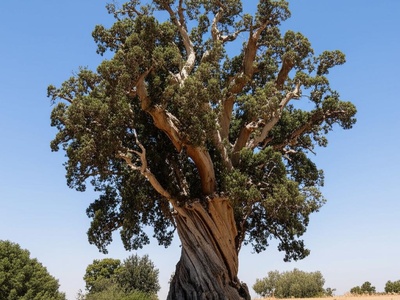
Palestine Pistachio
A large, deciduous tree with a massive trunk, often found standing alone in arid landscapes. Some ancient specimens are thousands of years old. It is a protected species.
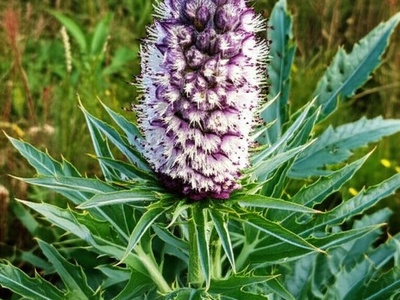
Syrian Bear’s Breech
A majestic perennial with large, spiny, deeply lobed leaves that inspired the Corinthian column design. It sends up a tall spike of purplish-white flowers protected by spiny bracts.
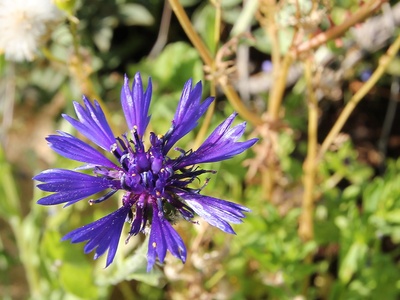
Syrian Cornflower-thistle
A beautiful annual that resembles a bright blue cornflower. Its vibrant blue flower heads make it a standout in the spring landscape, and it is a protected wildflower.
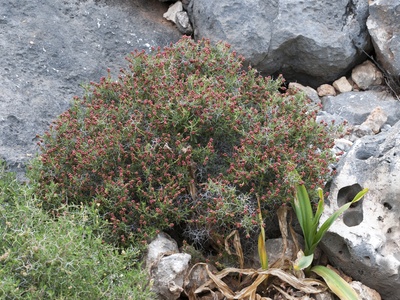
Thorny Burnet
A low-growing, thorny, cushion-shaped shrub. After its leaves fall in the summer, the dense, thorny skeleton remains, making it a highly recognizable landscape feature.
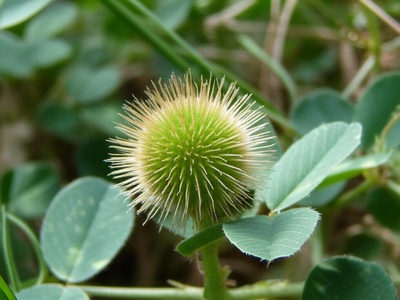
Ciliate Medick
A common annual clover-like plant. It is easily identified by its tightly coiled, spiny seed pod, which looks like a small, prickly burr and aids in seed dispersal by animals.
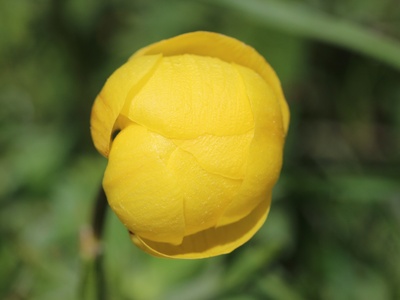
Globe-flower
A small evergreen shrub that produces charming, blue, pom-pom-like flower heads. It is a drought-resistant plant that adds a splash of blue to the rocky landscape.
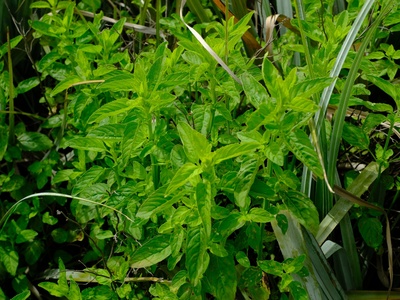
Water Mint
A fragrant perennial mint that thrives in or near water. It has purplish stems and rounded heads of small, lilac-colored flowers. Crushing the leaves releases a strong, minty aroma.
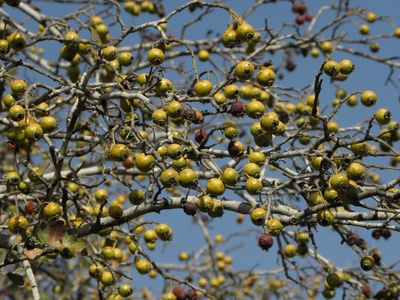
Spiny Hawthorn
A thorny, deciduous shrub or small tree that is covered in clusters of white flowers in the spring. In autumn, it produces edible, yellow-orange, apple-like fruits.
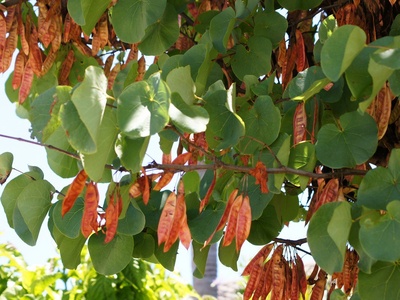
Judas Tree
A spectacular tree that produces an explosion of bright magenta-pink flowers directly on its bare branches in early spring, before the heart-shaped leaves emerge.

Hairy Thorow-wax
A unique-looking annual where small umbels of yellow flowers are surrounded by large, pointed, leaf-like bracts that the stem appears to grow through.
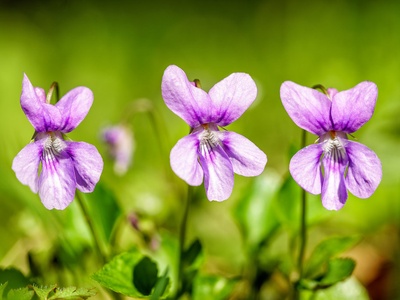
Dog-violet
A delicate violet with flowers that are typically pale lilac with a yellow center. Its leaves are distinctively divided into five (penta) narrow, finger-like lobes.
